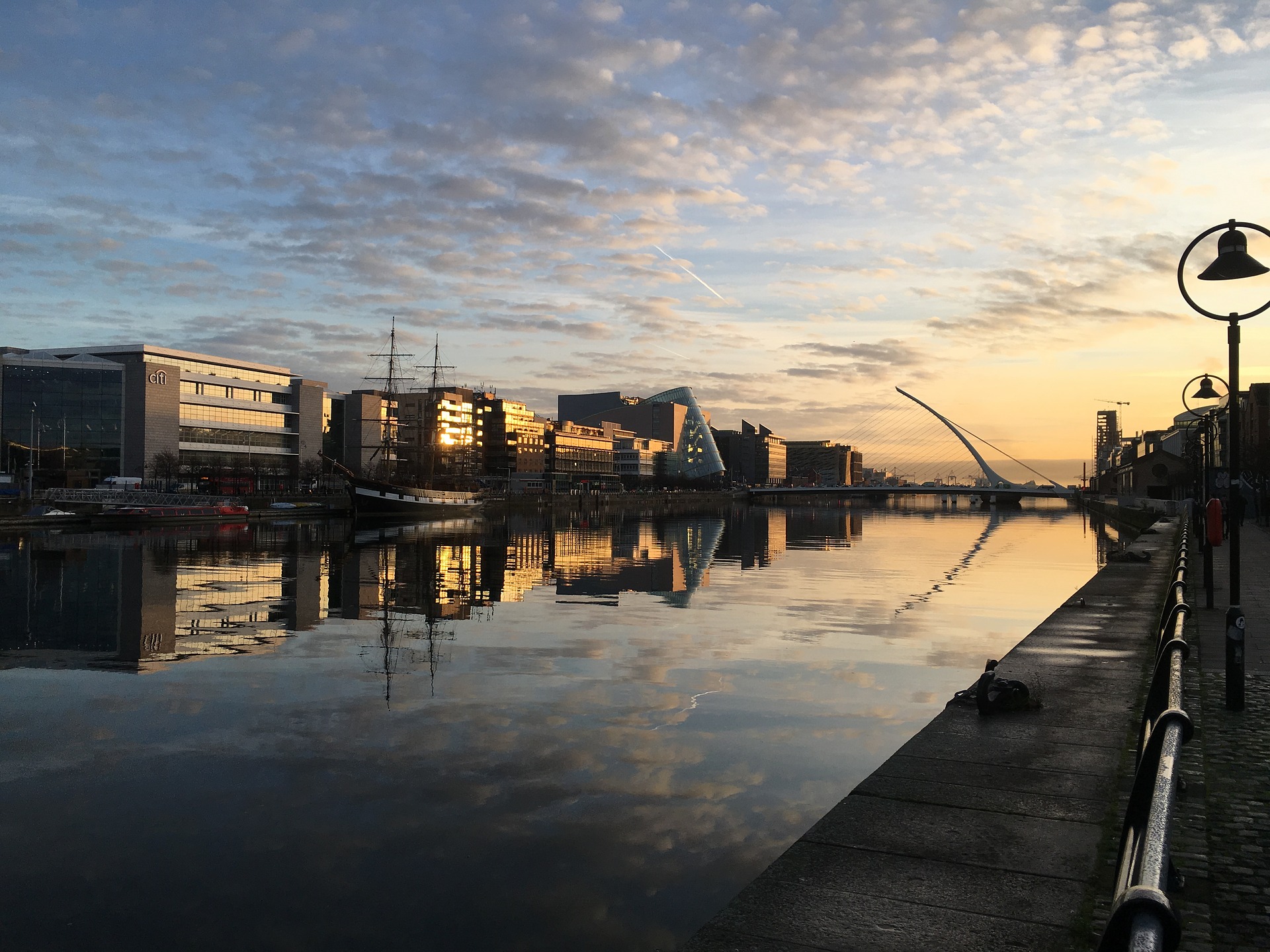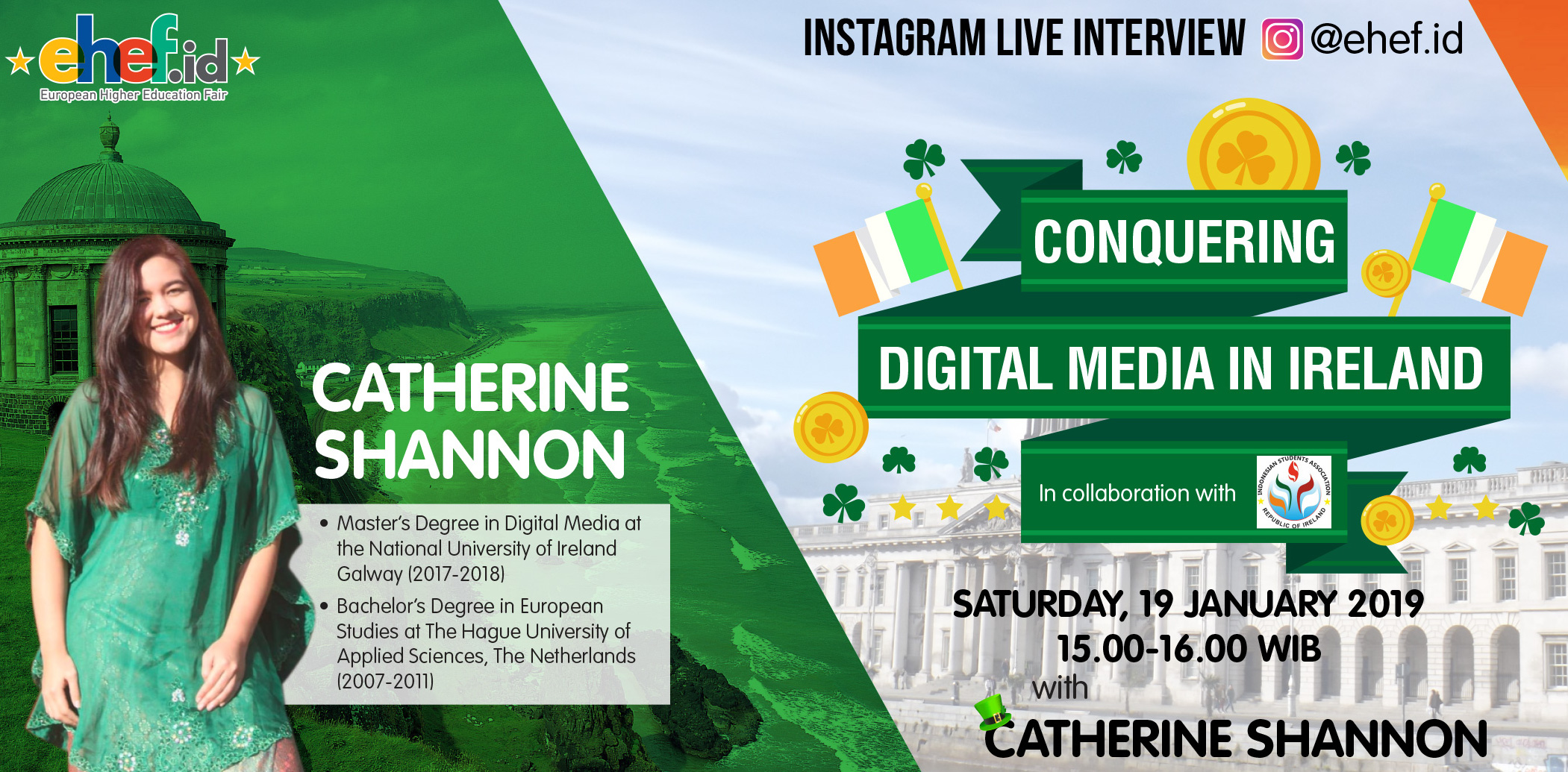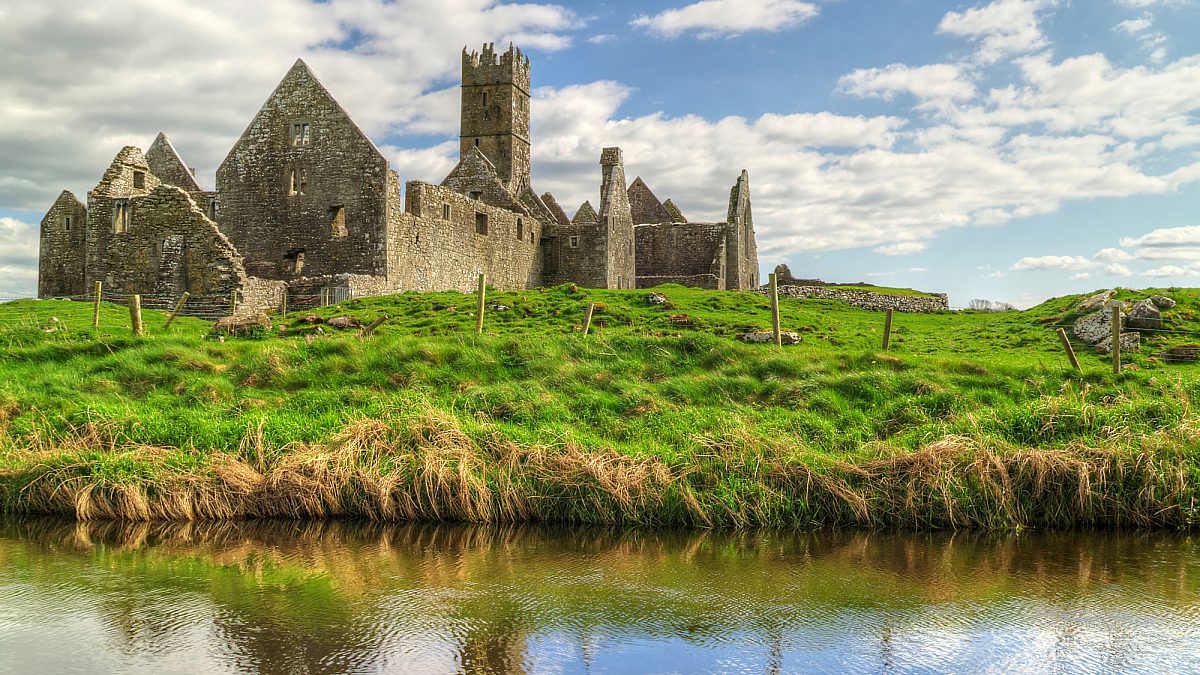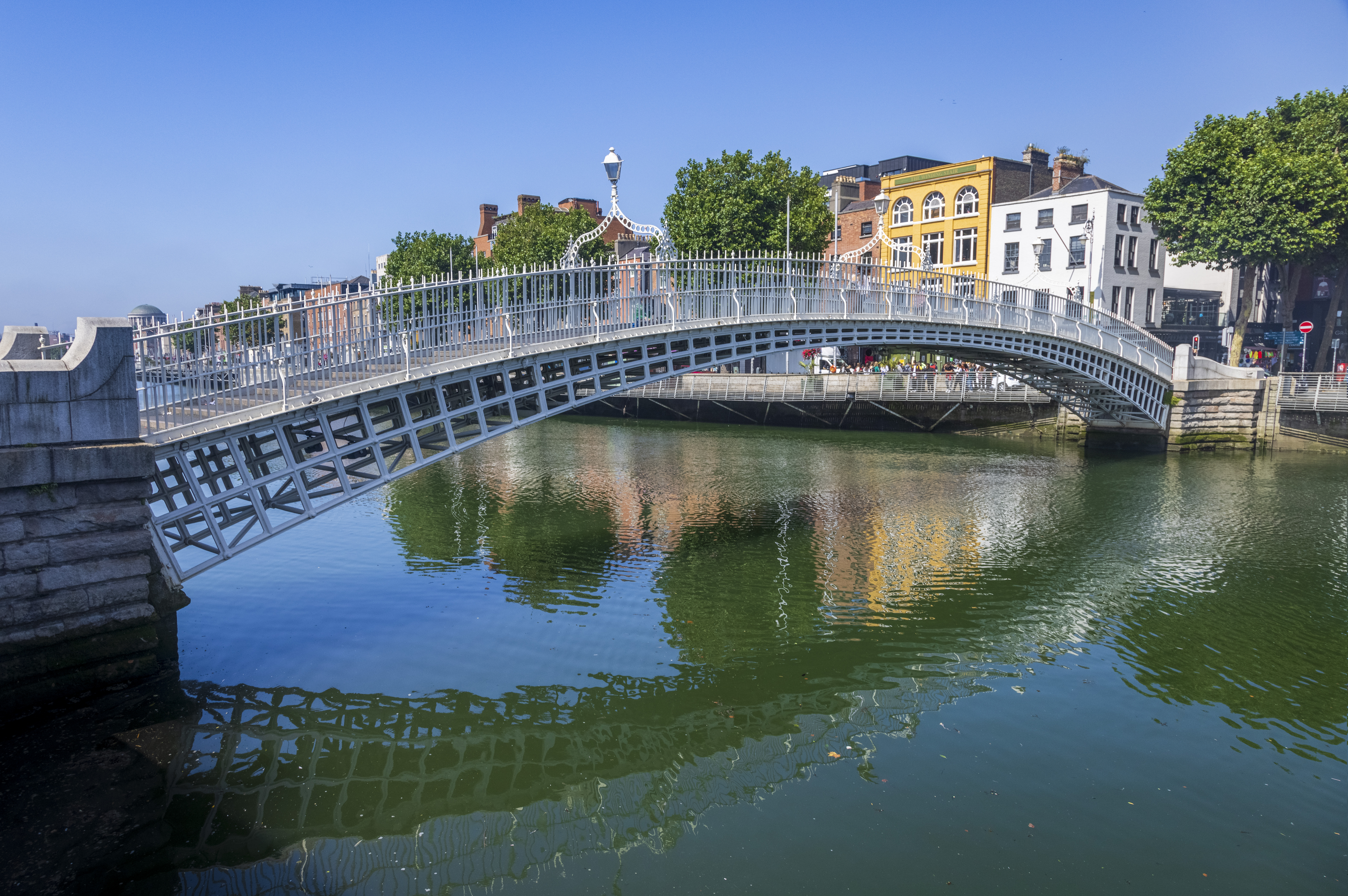
Study in Ireland
Last edited on 02 Mar 2026
Ireland is a beautiful island to the north-west of continental Europe. It is 300 miles long and 150 miles wide, making it the third-largest island in Europe and the twentieth-largest island on Earth.
Ireland was also named the best country in the world as a result of making the greatest contributions to humanity on the planet, according to a new survey carried out by the ‘Good Country Index.
Higher Education System
- Ireland has a longstanding reputation for high-quality education which is built on a solid foundation of commitment to excellence.
- We have one of the best education systems in the world and an internationally renowned reputation for academic success.
- Regularly referred to as the land of saints and scholars, Ireland's higher education institutions are well established in the global ranks for educational excellence.
Universities in Ireland
Student Cities in Ireland
Dublin
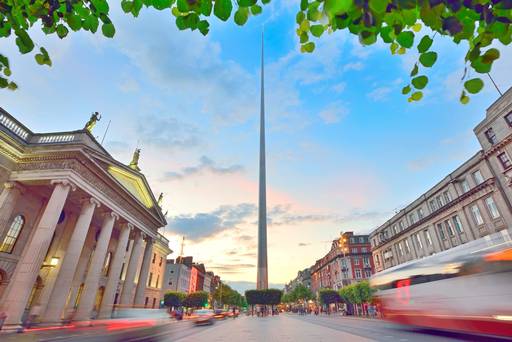
Ireland's capital has by far the greatest concentration of universities and colleges in the country – among the reasons for its place in the QS Best Student Cities index. A popular city-break destination, there’s certainly no shortage of things to see and do in Dublin – from admiring beautiful medieval architecture and retracing the steps of famous novelists, to visiting the Guinness Brewery and discovering the meaning of ‘craic’ in one of the city’s lively pubs. The city is known for being expensive, and living costs are higher here than elsewhere in Ireland, but Dublin is certainly not the world’s priciest student destination – and it gives a lot back.
Universities and Colleges in Dublin :
Institute of Art, Design & Technology
National College of Art and Design
Royal College of Surgeons in Ireland (RCSI)
Galway
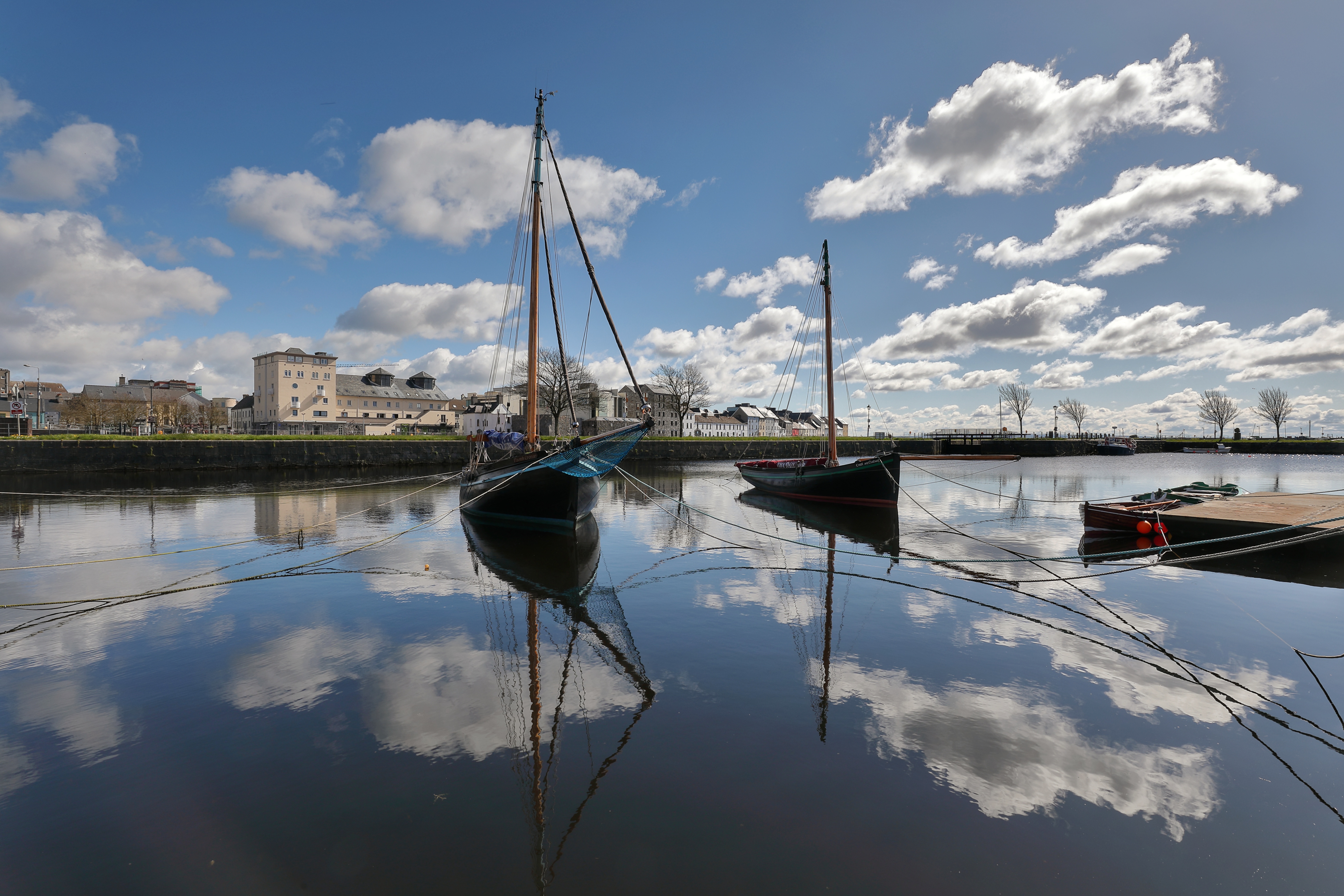
Parallel with Dublin, but on the beautiful and wild west coast of Ireland, lies Galway. Combining beautiful beaches with a buzzing city center, Galway offers all the traditional and modern-day Irish experiences you could want: cobbled streets, brightly painted buildings and heaving pubs hosting throbbing live music. The city is known as a hub for arts and culture, and hosts popular annual events such as the Galway Arts Festival, Galway Film Fleadh, and Cúirt International Festival of Literature.
Galway is home to :
Atlantic Technology University
Shannon College of Hotel Management
Cork

Cork is Ireland's second city, located on the southern coast of Ireland, boasts a fantastic cultural scene. Its combination of historic architecture and vibrant cultural life makes it a popular stop for tourists, particularly during the annual Cork Jazz Festival. There’s a good selection of nightlife, from traditional pubs to trendy bars, and as usual in Ireland, stunning countryside is never far away, with Cork, and nearby Kerry, two of the most popular tourist destinations in Ireland.
Institutions in Cork include :
Limerick
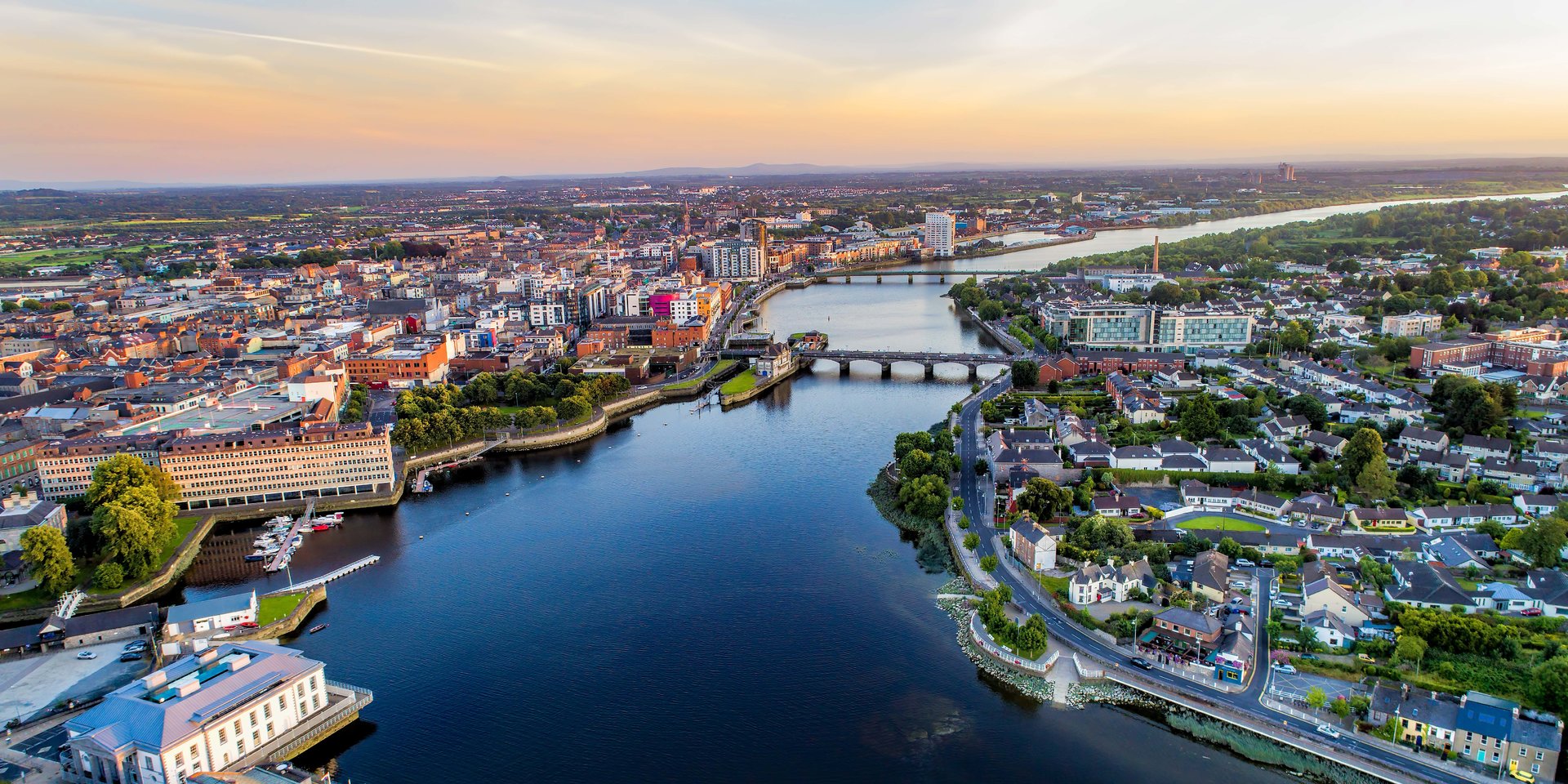
Historic Limerick, known to many as Ireland's sporting city, is also a great student center boasting excellent higher education institutions. Located at the head of the Shannon Estuary, where the famous river Shannon meets the Atlantic Ocean, Limerick is also a growing cultural hub, having been honored as Ireland's inaugural National City of Culture in 2014.
Limerick is home to :
Dundalk
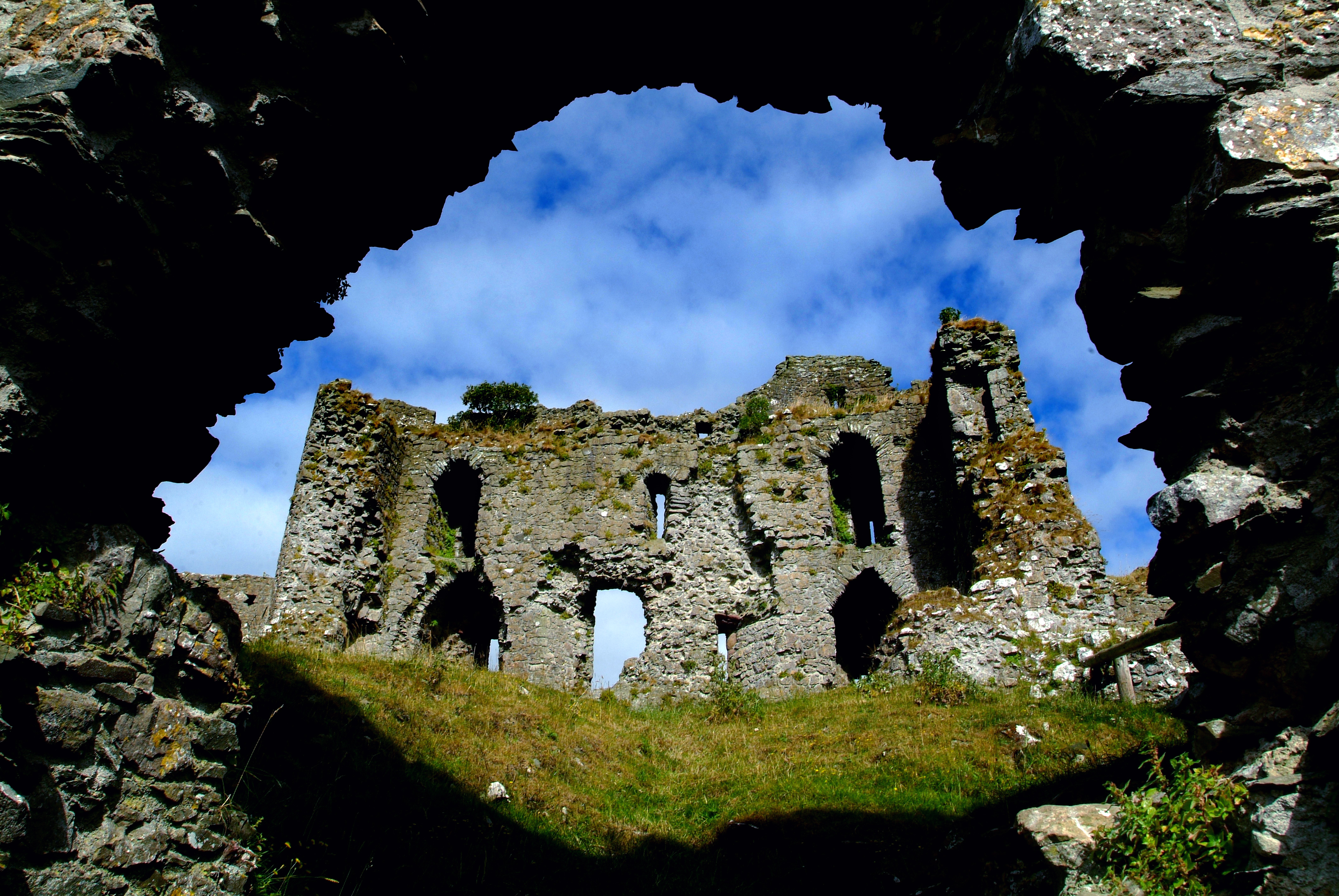
Possibly better known to many Indonesians as home of The Corrs, Dundalk is a small student town just a short trip north from Ireland's capital, Dublin! A location with a fascinating history, this medieval town is also home to Dundalk FC - one of Ireland's Premier League football clubs - and was once, according to legend, also the home of Cúchulainn, one of Ireland's many folk heroes.
Dundalk Institute of Technology is located here, and has proven to be very popular amongst Indonesian students
Maynooth
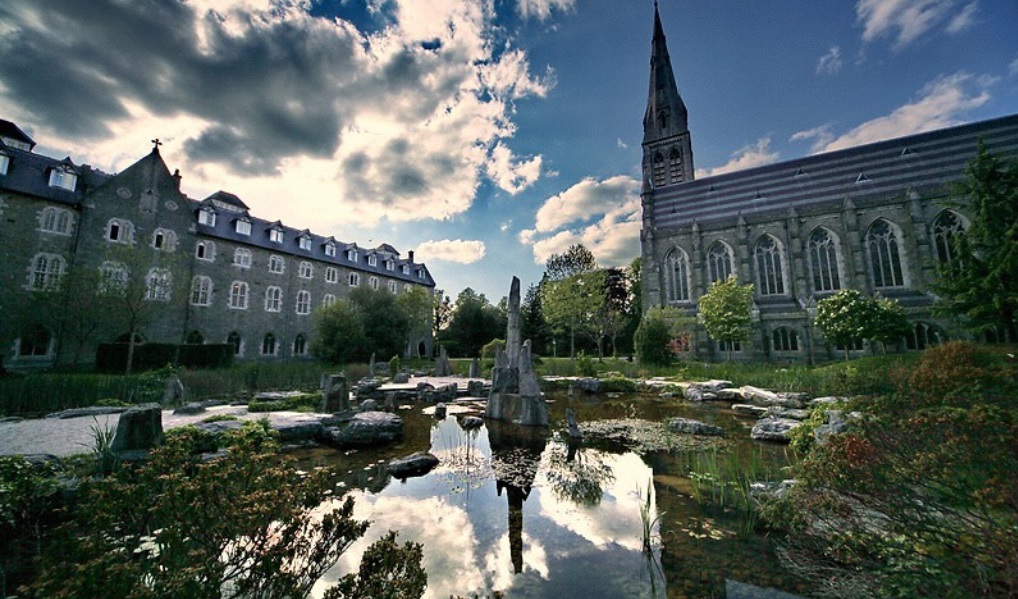
Maynooth, situated outside Dublin city, is Ireland's only university town, with a population of approximately 20,000 during the academic year. However, its small size is no disadvantage; numerous degree courses are offered here, and the universities' academic departments are world renowned. Its small size also offers are more intimate living experience, while the bright lights of the big city are less than half an hour away, and is home to Maynooth University a Pontifical University and Ireland's main Roman Catholic seminary
Athlone
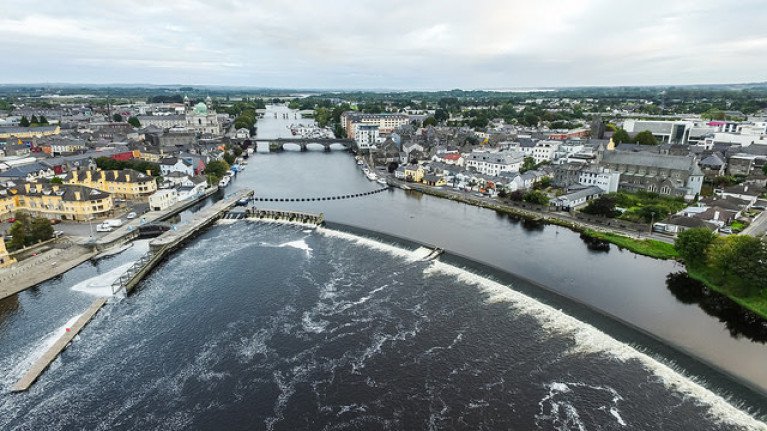
Athlone is a town in central Ireland. The medieval Athlone Castle offers views from its battlements, plus displays on local history. South of town, along the River Shannon, the early Christian ruins of Clonmacnoise include a cathedral and 7 churches. To the north, vast Lough Ree is dotted with islands, some housing monastic ruins. Dún na Sí Amenity & Heritage Park has a ring fort, a forge and rich birdlife and home to the Technological University of the Shannon : Midlands Midwest
Carlow
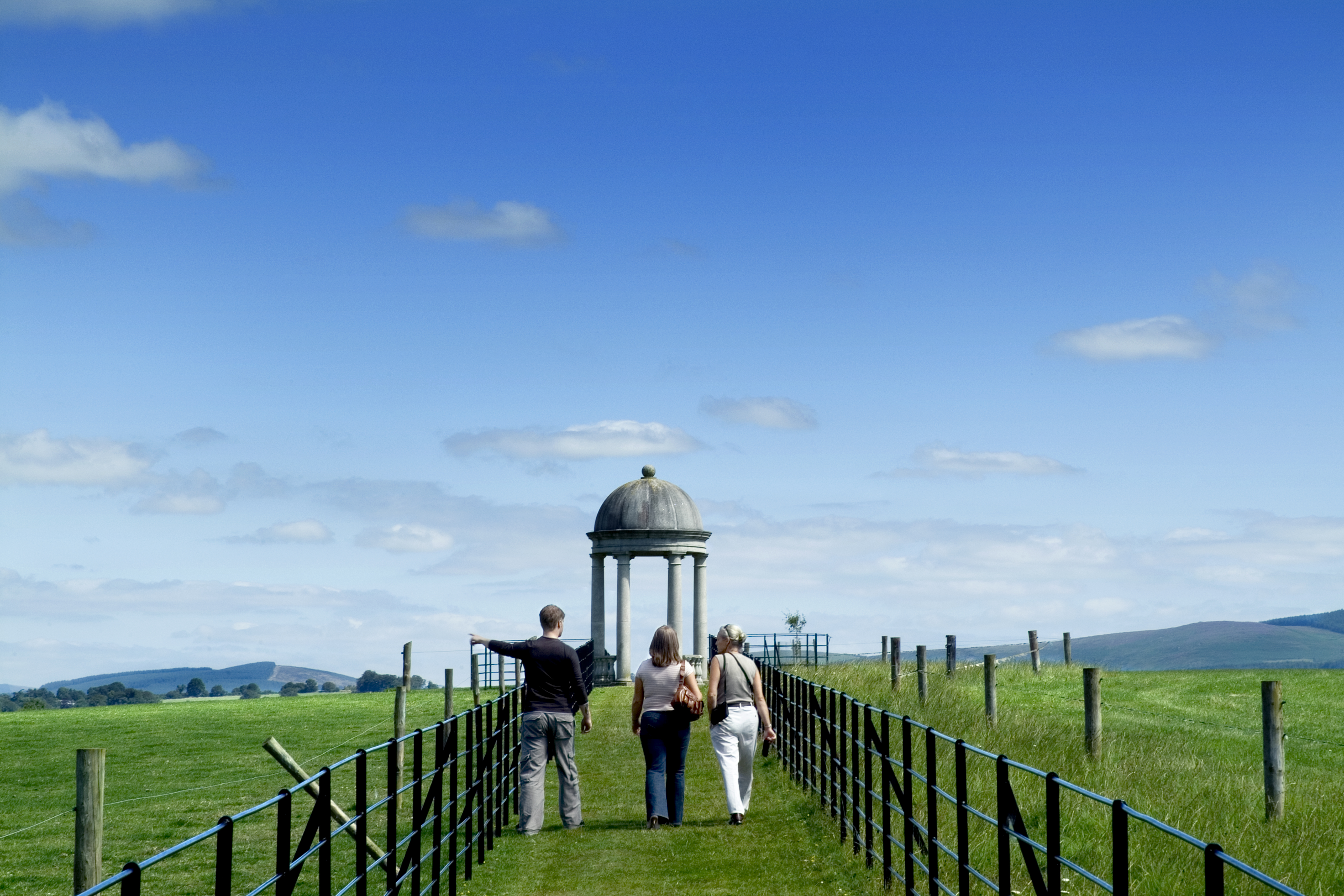
Carlow is the county town of County Carlow, in the south-east of Ireland, 84 km from Dublin. At the 2016 census, it had a combined urban and rural population of 24,272. The River Barrow flows through the town, and forms the historic boundary between counties Laois and Carlow. South East Technological University is one of the largest technology colleges in Ireland, with campuses in Carlow, Wexford and Wicklow, and part-time provision elsewhere in the Republic.
Sligo
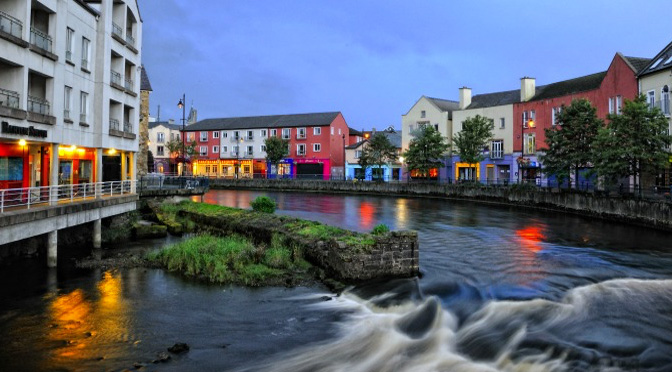
The town of Sligo, in the north of Ireland, straddles the Garavogue River where it meets Sligo Bay. It’s known for its literary heritage and rugged countryside. Ruined medieval Sligo Abbey has carved tombs and a 15th-century altar. Sligo County Museum displays memorabilia of local poet W.B. Yeats, paintings and Stone Age artefacts. The Model is a contemporary arts centre featuring works by 20th-century Irish artists.
Atlantic Technological University has been one of Ireland’s leading third level institutions. Students are at the heart of what we do. It is home to 6,000 students across the Institute’s full-time, part-time and apprenticeship programs, of those, 2,000 are studying online.
Tralee
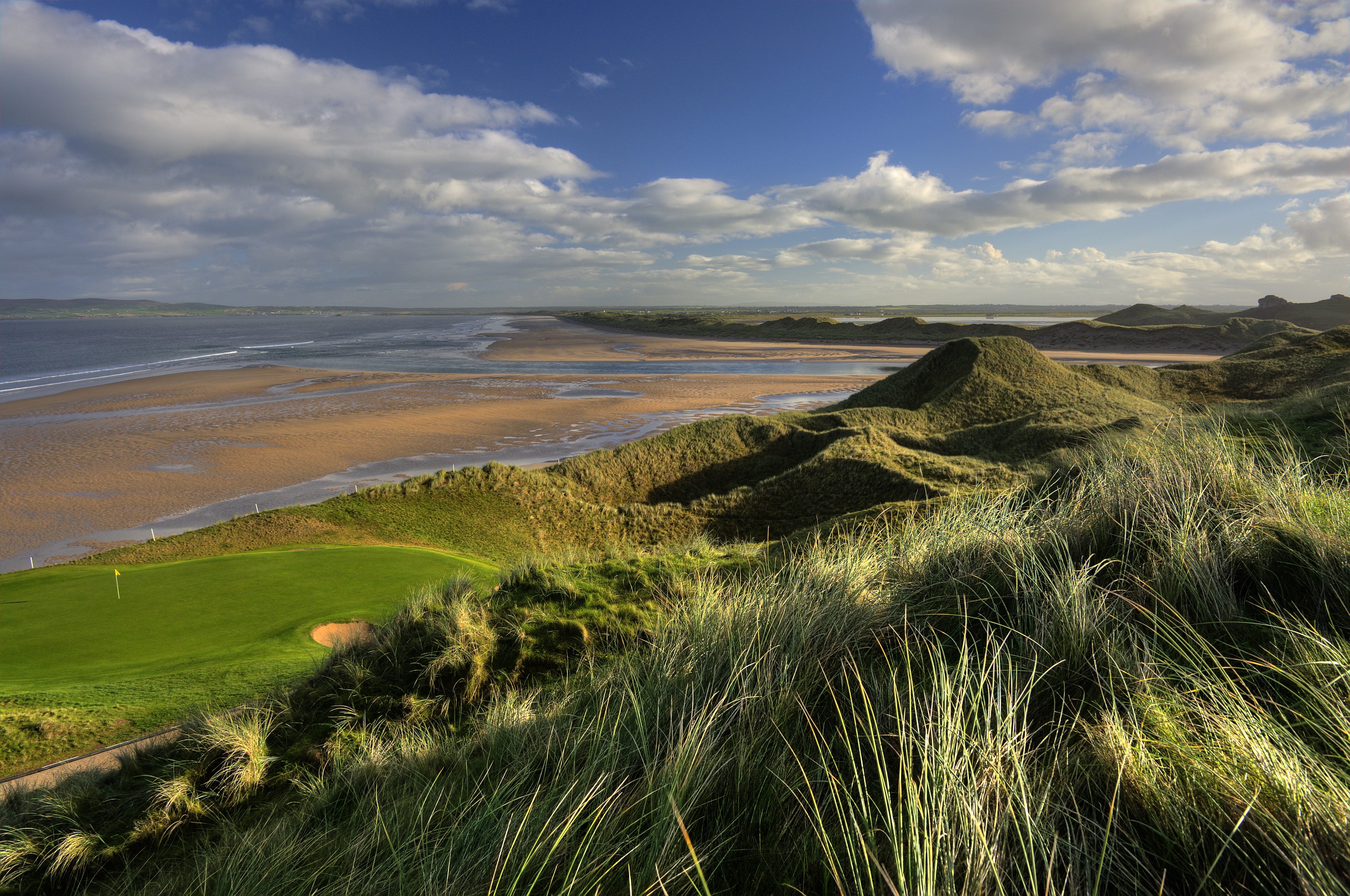
Tralee is a town in County Kerry, in southwestern Ireland. It’s known for the Rose of Tralee International Festival. A glass wall in Tralee Town Park bears the names of all the contestants in that festival’s beauty pageant. The Kerry County Museum has galleries on local history and a re-creation of medieval Tralee. Nearby, the National Folk Theatre of Ireland, Siamsa Tíre, puts on Irish music and dance performance.
Munster Technological University located in Ireland’s most popular tourist region, IT Tralee is surrounded it’s surrounded by great nightlife, restaurants & bars, mountains, rivers, lakes with the wild majestic Atlantic ocean nearby. It’s a stunning place to live.
Waterford
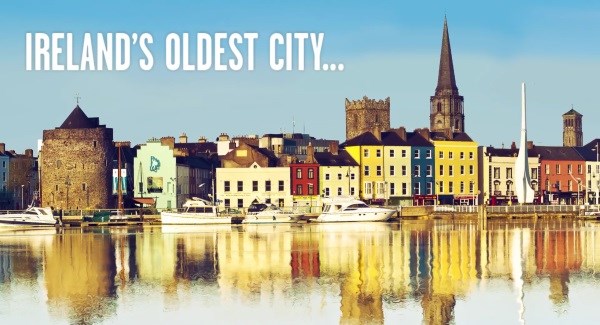
Waterford, a seaport in southeast Ireland, is the country’s oldest city. It was founded by Vikings in 914 A.D. and parts of its ancient walled core remain. Within Reginald’s Tower, a circa-1003 fortification, the Waterford Museum of Treasures displays local archaeological finds. Famed glass manufacturer Waterford Crystal began here in 1783. Today the company’s facility near the historic district offers factory tours.
South East Technological University is the major provider of higher education in the South East region of Ireland and one of the largest Institute of Technologies in Ireland. The Institute's range and scope reflect the changing needs of the southeast as well as the country as a whole. The range of academic programmes is exceptionally extensive, ranging from Higher Certificate right through to post-doctoral research and covering the Humanities, Health and Nursing, Science and Informatics, Engineering and Architecture, Business and Education.
Letterkenny
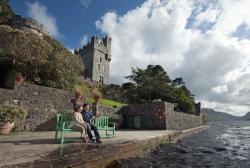
Letterkenny is a town in County Donegal, in the north of Ireland. It’s known for the Gothic-style St. Eunan’s Cathedral, with its towering spire. The town's Main Street is said to be the longest in Ireland. Donegal County Museum has displays on local history in a 19th-century workhouse building. Southwest of town, the Newmills Corn and Flax Mills have a huge working waterwheel powered by the River Swilly. Atlantic Technological University is a vibrant, dynamic and modern learning environment where you can pursue your academic and career ambitions with confidence.
Penang, Malaysia
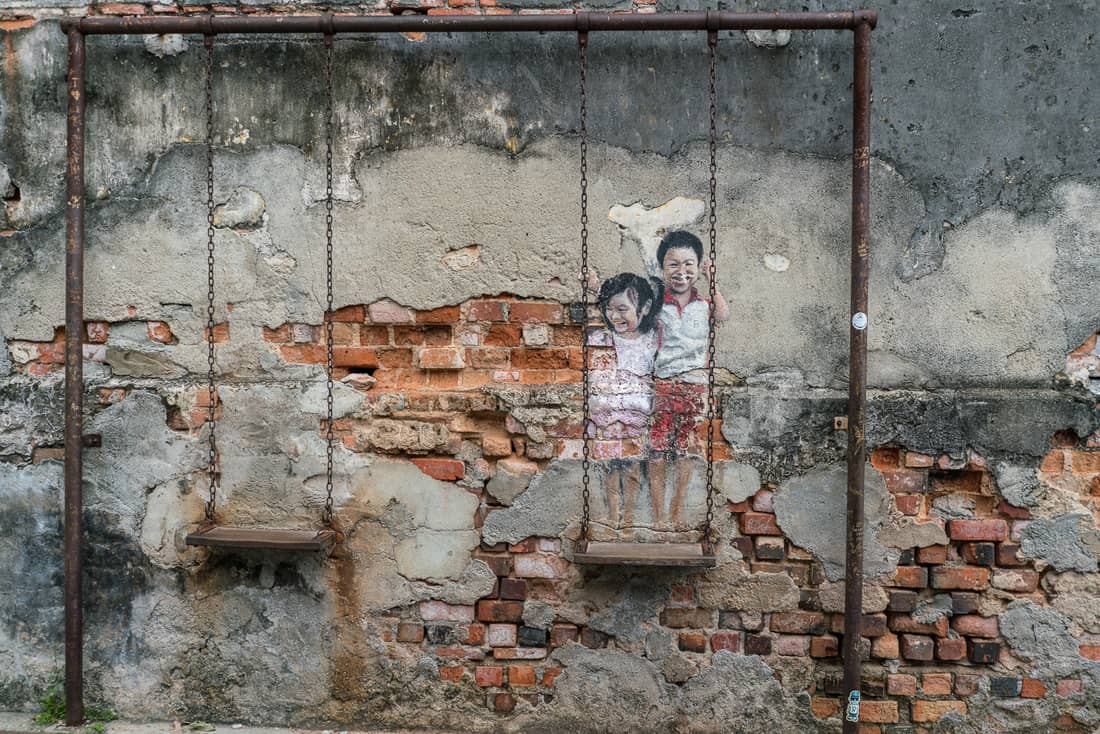
The RCSI and UCD curriculum will set you apart as being a clinically distinguished graduate, competent and confident to begin the challenging houseman years in Malaysia or the world.
As a Foreign University Branch Campus student, you and your RUMC classmates will be fully immersed with the Irish and international students throughout the RCSI and UCD duration of the course. When you transfer back to Penang, you do so with your cohort and friends that you have studied with in Dublin. This is unlike some other cross-border medicine programs where you travel overseas by yourself which can make adapting to life overseas much more challenging.
On graduation from RUMC, you will be conferred with an internationally-recognized medical degree from the National University of Ireland (NUI).

Application, Fees and Visas in Ireland
There are 7 steps to take in order to begin your new life studying in Ireland!
Choose you college and programme
Get as much information as possible about the college and the course you’re interested in. once you have narrowed down your choices, contact the college to which you wish to apply and ask them to send you detailed information on the course and on application procedures. (These may vary across different institutions, so if you are interested in more than one college, ask each one for its procedures).
Applying for a course
Carefully consider all the information you have been sent. Before you apply ensure that your academic and English language standards meet those required. Again, selection criteria can vary. It is important that provide everything that has been requested.
Confirming a place
If you are offered a place, congratulations! Now, you will be asked to send the admission fee. It is important that you do this as soon as possible in order to secure your place.
Booking accommodation
Once you have been offered and have accepted your place, think about the practical aspects of living in Ireland. Generally, three types of accommodation are on offer: rented apartments, student accommodation, and home stays. Most universities and colleges have accommodation officers to help you decide which type is best for you. It is really important to organize your accommodation well in advance of your arrival.
Passport
Be sure to get your passport as soon as possible. If you already have one, check it is valid for a sufficient amount of time. If it’s due to expire in less than 12 months, apply for a new one.
Check the immigration and visa regulations
Apply for your student visa (see below)
You’ve arrived!
Welcome to Ireland! When you arrived in Ireland, it is very useful that all your documents are in order and that you have fulfilled all the requirements of your visa approval. If you are staying in Ireland for more than 90 days you will be required to register with the Garda (the Irish police service). Make sure you do this within three months of arrival.
Visas
Indonesian students require a visa to study in Ireland. Please refer to the website Naturalisation and Immigration Service (INIS) . INIS has overall responsibility for all immigration matters and sets the guidelines for supporting documentation to accompany visa applications
To apply for a free student visa, you must provide the following documents:
- Application Form (www.visas.inis.gov.ie) – signed and dated by applicant
- Parent Confirmation Letter (If under 18 yrs)
- 2 photographs, white background, size 3.5 x 4.5 (zoom 80%)
- Copy of High School result
- Copy of High School certificate
- Copy of Evidence of your level of English (IELTS, TOEFL, etc.)
- Letter of Funding and from whom, e.g. government scholarship, self-funded, etc.
- Copy of Acceptance Letter from University
- Copy of Tuition payment Slip from Bank
- Copy of Receipt Payment from University
- Bank Statement (3-6 months) with authorize stamp from the bank, minimal fund €7,000
- Accommodation Details
- Flight Itinerary
- Medical Insurance
- Copy of Birth or Marriage Certificate
- Copy of current and previous Passports including any visas/ stamps from previous travel history
- 2 sets of all documents (original and copy)
- If you submit a document that is not in English, it must be translated by a sworn translator.
Visas for Indonesian students are processed through the Embassy of Ireland, Jakarta. The Embassy will NOT keep your original documents, although all original documents, including passport, will need to be presented to Embassy staff for verification.
Fees and funding
Tuition costs vary depending on the course, the institution and whether you are classified as a European student or non-European students. They also can vary, so check the fees with your chosen institution before you begin an application process. For further information you may click here:
Cost of living in Ireland
Living expenses vary depending upon where the higher education institution you choose is located, on the type of accommodation you prefer, and on the personal expenditure you choose on average, expect to spend between €10.000 – €16.000 per year (depending on where you are studying and your lifestyle).
English requirements
IELTS – Composite score of 6.5 with not less than 6.0 in any one component
Duo linggo - Composite score of 110.
Scholarships
Over one thousand scholarships are available for International students across our various third level institutions. For further information go to www.educationinireland.com
Working while studying in Ireland?
Students can work in Ireland while they study, subject to certain conditions. International students holding a valid immigration permission stamp 2 can work up to 40 hours per week only during the months of June, July, August and September, and from 15th December to 15th January inclusive. At all other times students holding immigration permission stamp 2 are limited to working up to 20 hours per week. The permission to work will end when stamp 2 expires.
If you are a degree programme student, you are eligible for casual work once you are:
- Registered with the Garda National Immigration Bureau (GNIB)
- Enrolled on a recognized programme leading to a qualification recognized by the Minister for Education & Skills
- Attending a full time programme of education at or above NFQ level7
- Undertaking a minimum of 15 hours day time study per week
- Receiving tuition between the hours of 8am and 6pm per week for a minimum of 25 weeks per annum
- On a programme of at least one year’s duration
For further queries please contact Education in Ireland:
Ms Miranda Hough
Education Consultant
You can also email to Miranda Hough or call/WA
Follow our social media pages:
There are a number of scholarships available for international students from a wide variety of sources such as Government of Ireland, the Irish higher education institutions and other organisations. These are awarded solely at the discretion of the individual organizations that set down their own criteria for eligibility.
To obtain more detailed information please click here
Government of Ireland - International Education Scholarships (GOI-IES)
These scholarships are targeted at international students who have the potential to be future leaders in their field and who are committed to making a difference in the world. The scholarship programme supports one year's study at Irish higher education institutions.
For detailed information on the Government of Ireland - International Education Scholarship you may find it here.
Government of Ireland Scholarship - International Education Scholarships
Focus Scholarship: 60 scholarships will be provided for one year study at Bachelor, Master or PhD levels
Competition: February 2021 - March 2021
Scholarship Coverage: A €10,000 stipend for one year’s study A full fee waiver of all tuition and other registration costs at the higher education institution
Government of Ireland International Education Scholarships Programme Call 2020.
Under the initiative 60 scholarships will be provided for one year study at Bachelor, Master or PhD levels to successful candidates who have an offer of a place at an eligible Irish higher education institution
Criteria
http://eurireland.ie/assets/uploads/2020/02/Call-2020-Final-1.pdf
http://eurireland.ie/assets/uploads/2020/02/GOI-IES-FAQ-2020-1.pdf




